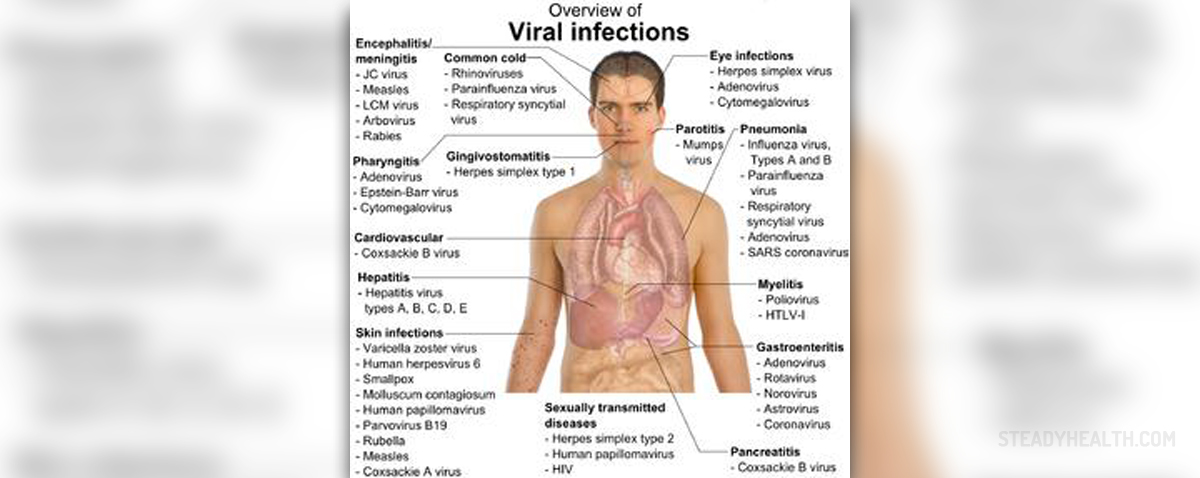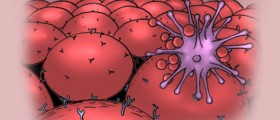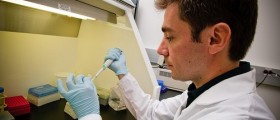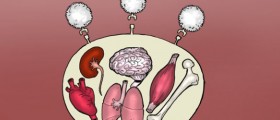
Viruses are widely known as harmful microorganisms which can cause quite severe health issues once they infect our body. Therefore, we are always advised to eat healthy food and live a healthy life in order to boost our immunity and keep the viruses away.
However, sometimes, we cannot manage to do this and we get sick. Therefore, it is always good to know how these microorganisms function and how one can keep them at bay.
Immunity of Our Body
The main system of defense our body has is our immune system. Yet, viruses present quite a challenge for our natural protection due to their ability to stay concealed within the very cells of our body, making it impossible for antibodies to react against them. Fortunately, the human body has a couple of trick in its sleeve and, for these purposes, creates special, T-lymphocytes, which are cells which locate and destroy viruses. Namely, these cells manage to do this since viruses, once they start multiplying, affect the cells they are hiding it, making themselves visible. Thus, in most cases, once the virus leaves the cell, it gets destroyed by our immune system's lines of defense.
In order to cure a viral infection, taking antibiotics is not a good step to take. Basically, while these drugs might be very effective against bacteria, viruses cannot be stopped by them. Hence, different approaches are necessary in these cases. Basically, viruses are very simple organisms which take advantage of the cells they hide in. Therefore, antiviral drugs need to interfere with the enzymes that viruses contain in order to get rid of them.
Why are Viral Infections Dangerous?
Unfortunately, since the beginning of our fight against viruses, we have not been able to create an universal cure. Rather, today, we can only prevent and recover from influenza, herpes, hepatitis B and C and some other diseases. Even HIV can be affected by antiviral drugs.
Subsequently, people can receive vaccinations against different viral diseases. Yet, some forms of viruses mutate constantly and become more and more harder to deal with. In fact, many times, this mutation happens before the vaccines for the previous type of a virus get created.
Apart from the above mentioned characteristics which make viruses quite a threat for our organism, there are other traits this microorganisms carry, triggering shivers down our spine. Most viral infections take place in the respiratory tract, being easily transmitted through sneezing, coughing, saliva and other such contacts.
Some viruses, usually those which affect the gastrointestinal system, get transferred through unhygienic conditions, through contact with contaminated water, food, feces and other such things. The viral gastrointestinal infection is commonly referred to as stomach flu.
Additionally, viruses can affect our skin too. For example, wart, chicken pox, herpes and many other viruses are all infections which take their toll on our skin, through itchy rashes, blisters or other, similar growths. Herpes usually affects one's mouth or genital areas, depending on the type of the virus itself. Oral herpes gets contracted through many forms of contact with the contaminated body fluids while genital herpes is a viral condition classified as a sexually transmitted disease.
The worst thing about all viruses is that they commonly remain within our body for the rest of our lives, waiting for our immune system to lose its power in order to strike again and lead to “outbreaks”.
Cure for Viral Infections
The first step towards any type of treatment for viral infections is a proper diagnosis. Yet, even though conditions like influenza can be easily diagnosed due to the fact that we know almost all about the symptoms and the characteristics of the disease, some other viral diseases may be a complete mystery our medicine cannot possibly solve.
Nevertheless, before a viral infection is diagnosed properly, many types of tests may need to be carried out, including blood tests, samples of blood, bodily fluids or other parts of the infected tissue for the analysis of cultures, spinal taps, polymerase chain reaction techniques, MRIs etc.
Also, observing the symptoms is a very important step towards a successful diagnosis. People suffering from viral infections may be affected by many signs of this condition. Some of the main ones are fevers, muscle pain, coughing, sneezing, runny nose, headaches and chills, as well as diarrhea, vomiting, general fatigue and the development of rashes.
Once a viral infection gets more serious, it can lead to changes in one's personality, stiffness in the neck area, dehydration, paralysis, seizures, back pain, loss of sensation, malfunctioning organs and sleepiness which can evolve into a coma or even death.
Finally, your greatest defense against viral infections is your own body and its immune system. Also, age, the severity of the condition, the types of the virus and one's overall health all play a very important role in this process.
During infections, you are advised to get plenty of rest, deal with the nasal drainage with exposure to warm water and drink plenty of natural fruit juices as well as water. If the nasal passages seem clogged, use steam exposure to clear them.
If the viral infection does not disappear on its own, you are advised to seek medical attention as soon as possible.

















Your thoughts on this
Loading...